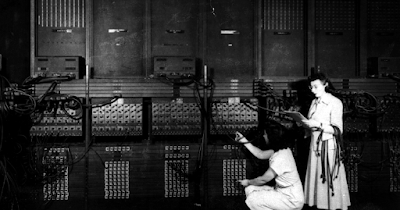A Journey Through Time: Exploring the Fascinating History of Computers
A Journey Through Time: Exploring the Fascinating History of Computers
Introduction:
Hey there! Have you ever stopped to think about how amazing it is that we have computers today? They're everywhere – from our phones to our tablets, and even in some of our appliances! But have you ever wondered how it all started? Let's take a trip back in time and unravel the story of computers, starting from way back when people were using sticks and stones to count!
1. Ancient Beginnings:
Imagine living thousands of years ago, in a world without smartphones or laptops. People had to come up with clever ways to do math and keep track of things. That's where ancient tools like the abacus came in handy. The abacus was like a wooden frame with beads on wires. People could move the beads around to add and subtract numbers. Pretty cool, right? Different cultures had their own versions of counting tools, showing that humans all over the world were thinking about how to do math.
2. Mechanical Marvels:
Fast forward to the 19th century. This was when things started to get really interesting! A guy named Charles Babbage came up with an idea for a machine called the Analytical Engine. It was like a giant, steam-powered calculator. Even though Babbage never got to finish building it, his ideas were super important because they laid the groundwork for modern computers. Can you imagine carrying around a steam-powered computer in your backpack?
3. The Rise of Electronics:
Now, let's zoom ahead to the 20th century. This was when computers started to become more like the ones we have today. Engineers figured out how to use electricity to make computers work faster and do more things. One of the first electronic computers was called ENIAC, and it was HUGE – about the size of a room! But even though it was big and bulky, it could do calculations way faster than any human could.
4. Enter the Digital Age:
As the years went by, computers got smaller, faster, and way more powerful. Scientists invented things like transistors and microchips, which made it possible to fit lots of tiny electronic components onto a single computer chip. This was a game-changer because it meant that computers could now be small enough to fit on a desk or even in your pocket! And with the invention of programming languages like BASIC and C, people could write instructions for computers to follow, making them even more useful.
5. The Internet Revolution:
But wait, there's more! In the late 20th century, something amazing happened – the internet was born! This changed everything because it meant that computers could now talk to each other from all around the world. Suddenly, people could send messages, share pictures, and even watch videos, all from their computers. And with the invention of smartphones and tablets, we could take the internet with us wherever we went!
6. Looking Ahead:
So, what's next for computers? Well, scientists are always coming up with new ideas and inventions. Things like artificial intelligence and virtual reality are changing the way we think about computers and what they can do. Who knows what the future holds? Maybe one day we'll have computers that are even smarter than us! But no matter what happens, one thing's for sure – the history of computers is a fascinating journey that shows just how far we've come from counting sticks and stones to building supercomputers that can do almost anything!
Conclusion:
Computers have come a long way since the days of the abacus and the Analytical Engine. From giant, steam-powered calculators to tiny smartphones that fit in our pockets, the story of computers is a testament to human ingenuity and creativity. As we look to the future, it's exciting to think about all the new inventions and discoveries that lie ahead. Who knows what amazing things we'll come up with next? One thing's for sure – the journey of computers is far from over, and there are still plenty of adventures waiting to be had!





Comments
Post a Comment